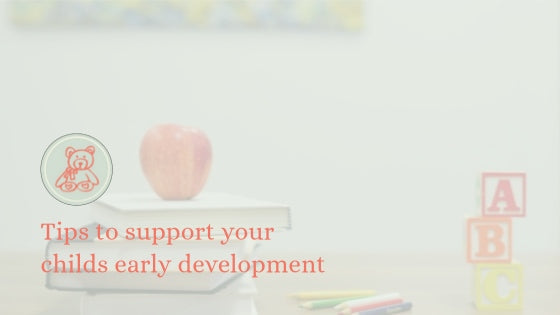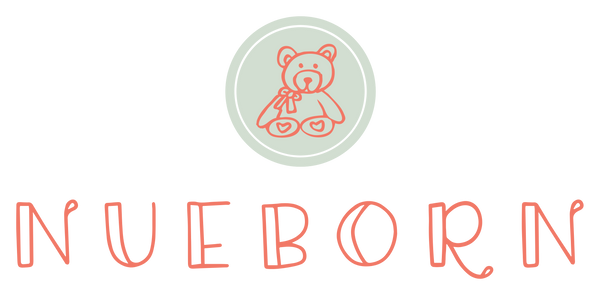
Tips to Support Your Child’s Early Development
Share
In this blog we will talk about tips to support your child 's early development. The early years of a child's life are so crucial for establishing attributes that will last a lifetime such as intellect, personality, and health.
During this extensive period of growth from newborn to age five, young minds develop rapidly through interaction with caregivers at home. This introduction will provide caregivers with valuable recommendations supported by research to enrich development during these critical years.
Implementing simple strategies in daily life can help children acquire skills to succeed in school and beyond.
Promote Healthy Attachment
Nurturing secure attachments is crucial in these early months and years. By promptly responding to cries with comfort and care, little ones learn they can depend on caregivers to meet their needs. Ensure many opportunities for one-on-one interactions like playtime, feedings, and book reading to strengthen emotional bonds.
Communicating through smiles, gentle touch, and empathy helps babies feel emotionally secure in exploring their world, developing independence with the reassurance of a base to return to. Forming these close relationships sets the foundation for well-being.
Encourage Exploration and Play
Make time for open-ended play with toys, art supplies, and outdoor exploration to engage their natural curiosity. Join in the fun to develop problem-solving, motor skills and bonding. Interactive pretend play allows preschoolers to develop imagination and learn to cooperate through shared storytelling.
Must Read: Essential Apps for New Parents
Read Together Daily
Carve out 20 minutes daily for cozy reading sessions. Share books in a quiet space without distractions. Ask questions that spark their little minds with conversations about the pictures and characters. Snuggle up to develop their pre-literacy and spend quality time strengthening the parent-child relationship.
Establish Routine and Consistency
Young kids benefit from a structure with regular mealtimes, nap schedules and a predictable bedtime routine. Simple rituals provide comfort as they learn through play. Daily stability supports self-regulation as developing minds grasp time management. Reliable habits promote calm and focused learning.
Support Motor Skills Development
Incorporate movement with songs, ball play, gardening, and climbing at the park or obstacle courses. Active exploration builds strength, coordination and cardiovascular health from toddlerhood. Provide toys like riding vehicles, hoops, and balls to discover body awareness outdoors and in. The wiggles foster brain development.
Cultivate a Curiosity for Learning
Follow their lead with activities sparking natural interests. Hands-on discovery through gardening, science experiments or dance classes fulfills their quest for knowledge. Open-ended questions emphasise problem-solving over yes/no answers. Passion for learning helps kids reach their potential.
Promote Social Interaction
Arrange playdates, storytimes, and interactive classes for bonding beyond family. Among peers, they mirror communication and cooperation. Guide sharing, empathy and compromising in disagreements. Early social skills form friendships and lay the groundwork for handling relationships respectfully as individuals.
Limit Screen Time
Limit educational TV or videos to 30 minutes max with co-viewing to expand conversations. Excess hinders language development and creative time. Prioritize imaginative play, outdoor adventures, and bonding through unplugged activities instead. Screen habits established early impact schoolwork and lifetime wellness.
Encourage Independence
Give age-appropriate responsibilities through safely attempting self-care tasks like getting dressed, hygiene routines, or meal prep. With guidance and praise, try new challenges. Practicing life skills fosters confidence and resilience for kindergarten success in collaboration and independence.
Prioritise Emotional Intelligence
Choose books addressing feelings and relationships. Validate how they feel by naming emotions. Discuss caring, cooperation, and problem-solving using open dialogue during conflicts or upset feelings. Learning to recognize and handle emotions builds lifelong social-emotional skills for healthy connections.
The early childhood sets the stage for future learning, health, and happiness. By providing unconditional love, nurturing curiosity through play, and establishing supportive routines, you empower your child to realize their full potential. These small but impactful daily steps build resilience and confidence as they grow. Make bonding and joy top priorities to help foster an eager learner who feels secure exploring the world. With patience and guidance, you help develop a child ready for whatever challenges come their way.
